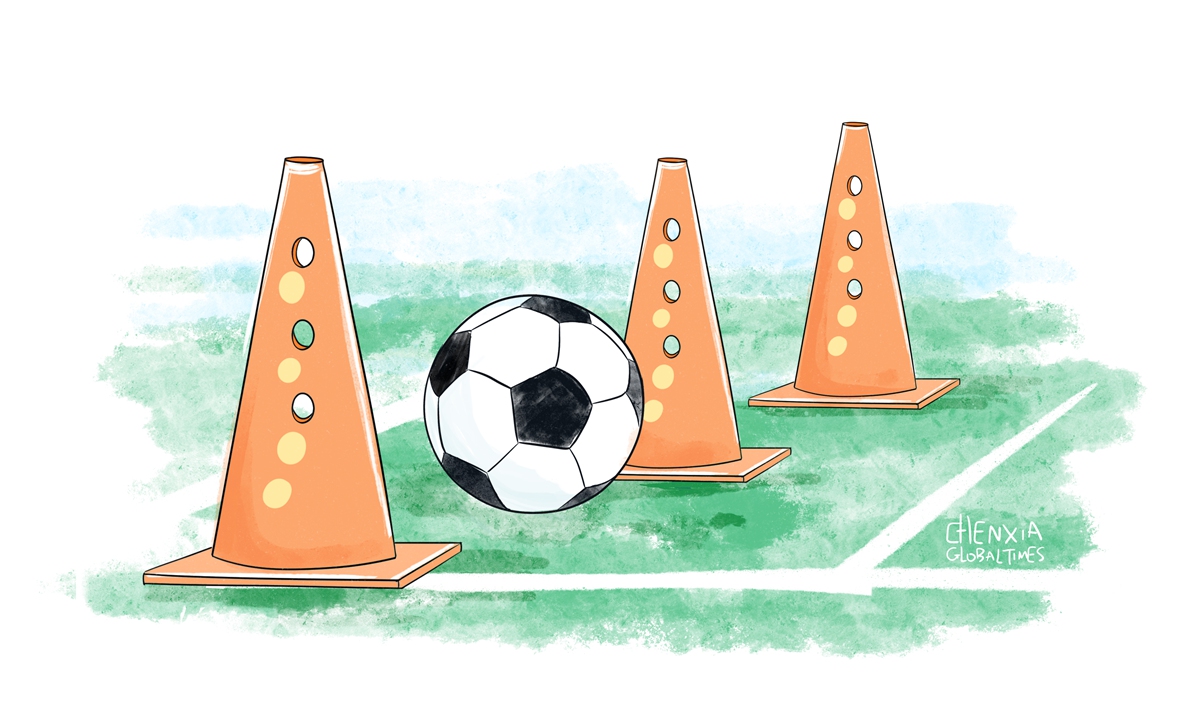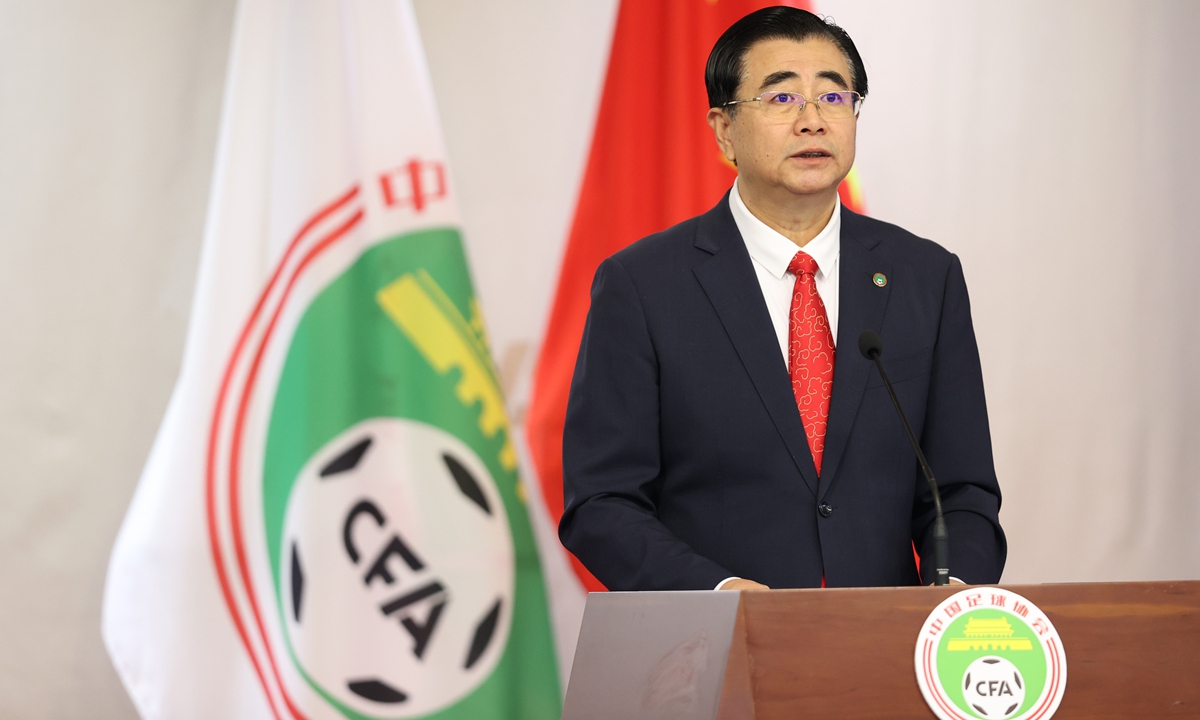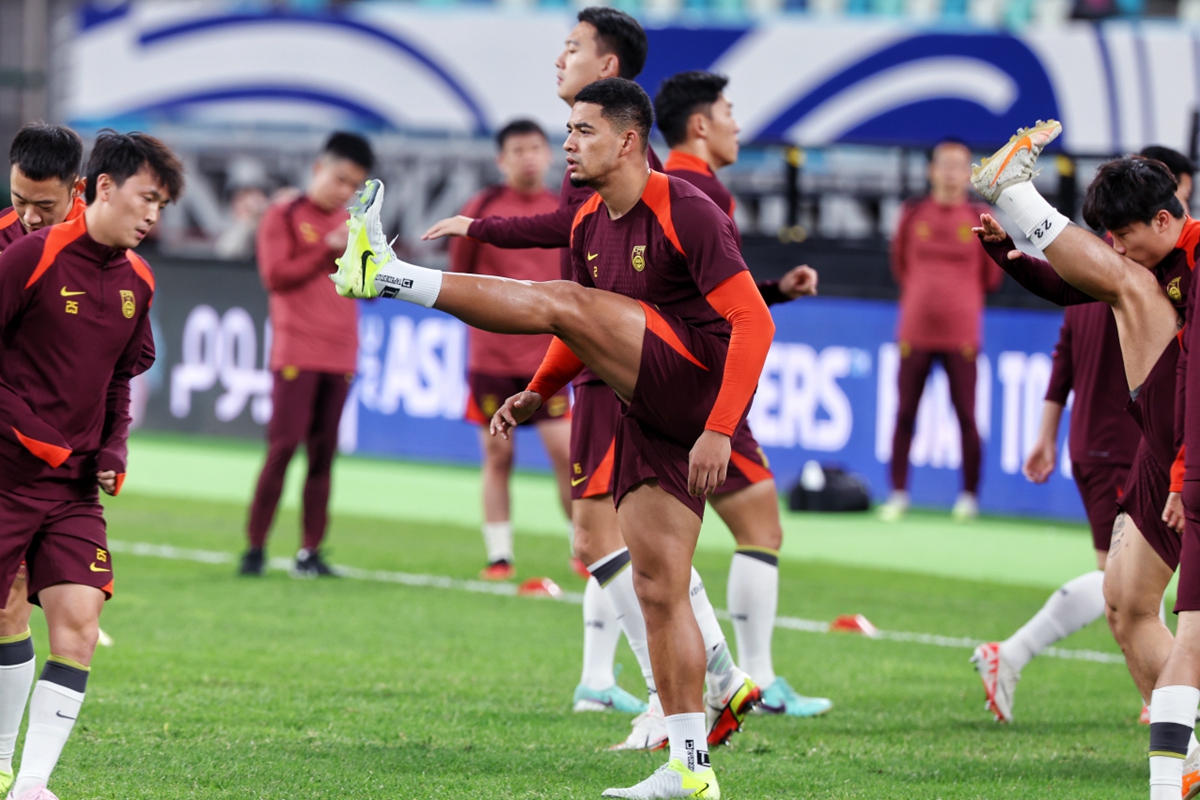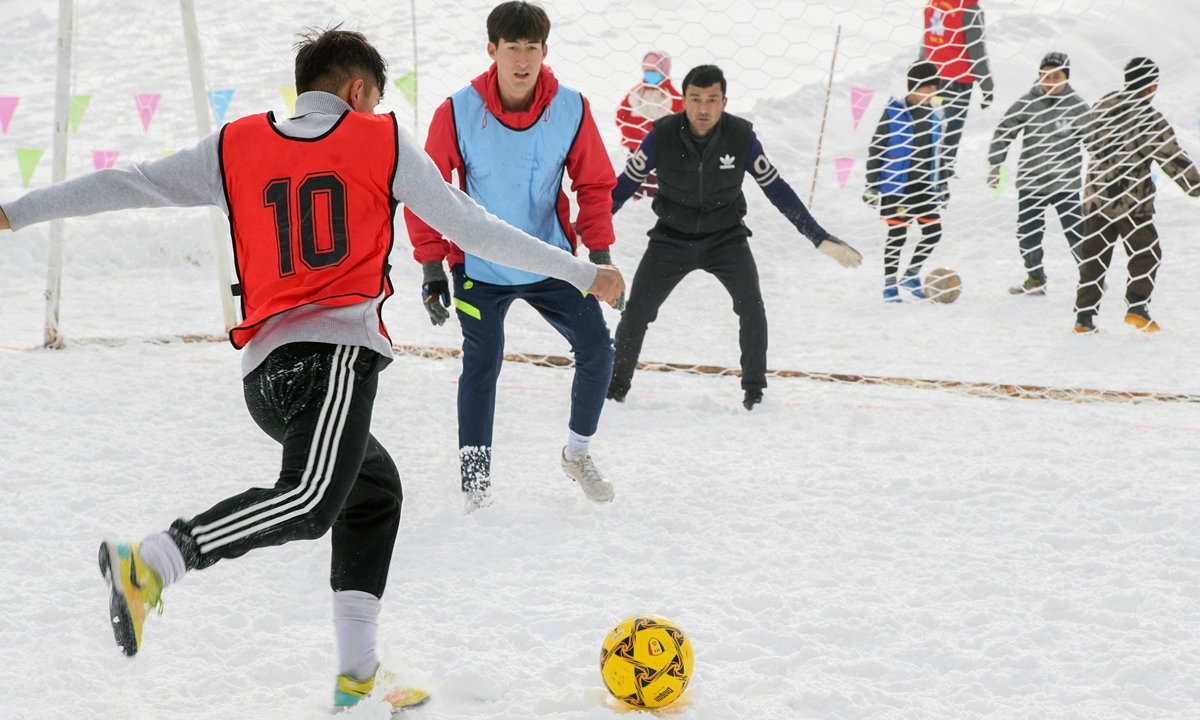
Enthusiasts play football in Kashi, the Xinjiang Uygur Autonomous Region. Photo: VCG
The recent emergence of a growing number of football talents in Northwest China's Xinjiang Uygur Autonomous Region and a succession of initiatives aimed at enlarging the youth football demographic have turned people's attention to the region, which has been committed to creating more opportunities to promote the development of football at the grassroots level.
Regarding the emergence of football talents from Xinjiang, Xu Ming, the chairman of the Xinjiang Football Association, told the Global Times in an exclusive interview that the outstanding football players cultivated by Xinjiang are a result of their inherent qualities, including excellent physical attributes. More importantly, their success stems from a deep, genuine passion for the sport.
Xu also expressed gratitude for the meticulous youth training systems in the country's eastern regions that have contributed to their development. Their success has had a tremendous motivational impact on Xinjiang's youth.
To promote the development of football in Xinjiang, he said that football cannot be separated from education, and that football itself is also a form of education. The development of football in Xinjiang must be rooted in local communities. The focus should be on developing amateur football and youth football through community-based amateur clubs, thereby building a solid foundation for the future of Xinjiang football, Xu said.
Educational role
Kashi and Yili are two cities in Xinjiang that were included in the pilot program for the integration of sports and education in football training in China's western regions.
Following the establishment of the football academy at the Xinjiang Normal University, another two universities in Xinjiang - Kashi University and Yili Normal University - announced the establishment of football academies in July 2024, providing a continuous talent pool for the future development of football.
"We must place great emphasis on the educational role of football in the development of youth players. Through football, children can experience comprehensive growth in areas such as willpower, awareness of rules, teamwork, problem-solving, and resilience," Xu told the Global Times.
These young athletes can go on to become professional players, coaches, referees, or football administrators. Even if they choose to leave the football industry, they can still become contributors in other fields, drawing on the qualities they developed through the sport, Xu said.
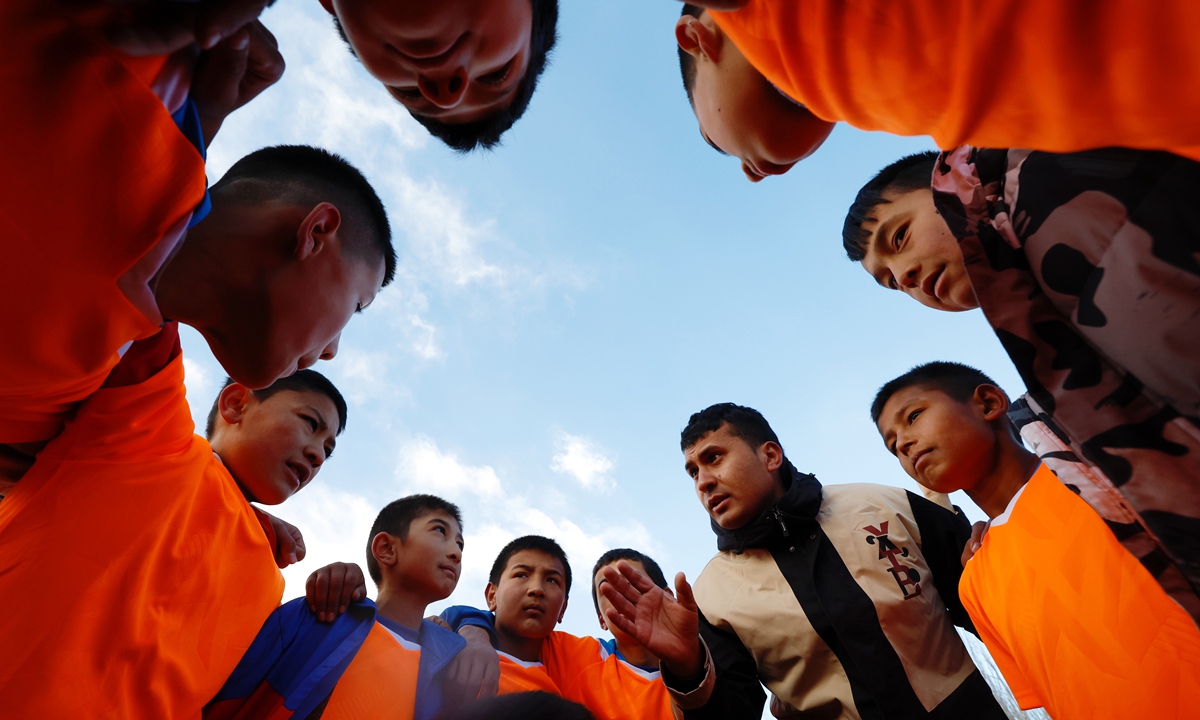
A football coach gives instructions to his players in Kizilsu, Northwest China's Xinjiang Uygur Autonomous Region. Photo: VCG
The progress of football in Xinjiang must be rooted in the community. For example, a community-based football club could establish partnerships with nearby schools, regularly organizing training sessions, friendly matches, and other activities, according to Xu.
The establishment of community-based amateur football clubs is the most fundamental element of football development. This is also a core principle in the basic laws of football development worldwide, he added.
Meanwhile, a new youth football training base, supported by the city of Shenzhen, South China's Guangdong Province, opened in Kashi in July 2024, providing a platform for over 400 local children to train during this summer.
The base, constructed with an investment of 100 million yuan ($13.76 million), features 14 sports fields, including three FIFA Quality Pro certified 11-a-side pitches.
Some 32 coaches from the base have been deployed to support football training in 15 local schools.
For mass fitness
In October, a crucial goal from Xinjiang player Behram Abduweli helped China squeeze past Indonesia 2-1, which marked China's first victory in the third round of the Asian qualifiers for the 2026 World Cup. As of November, 15 national team players from six different age groups and 25 players across 11 Chinese Super League teams come from Xinjiang, the Soccer News reported.
The three major ball sports - football, basketball and volleyball - have a strong grassroots foundation in Xinjiang.
In 2024, the region also held a three major ball league for the public. The four-month event consisted of four stages and a total of more than 3,700 matches, engaging over 1.8 million people across Xinjiang. The league not only promotes the widespread development of mass fitness in the region, but also stimulates the enthusiasm and energy of young people to participate in mass fitness, the Xinjiang Daily reported.
"We aim to develop the three major ball league into a brand event for mass fitness in the region, allowing the spirit of hard work and the power of unity behind sports to continuously play an important role in uniting people and inspiring progress," said Zhai Wei, director of the mass sports division of the sports bureau in Xinjiang.
